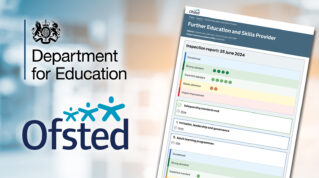A university has come under fire for poor supervision of its degree apprenticeships.
Ofsted said the apprenticeships on offer at the University of Hull suffer from “inconsistent quality” because they are managed within individual faculties with little central oversight.
In a ‘requires improvement’ report published yesterday, inspectors warned that managers lack a “cohesive strategy” to develop staff understanding of apprenticeship delivery. They currently do not have the “skills required to deliver these effectively”.
Ofsted was handed powers to inspect level 6 and 7 apprenticeships from April 1, 2021.
Before then, the inspectorate’s remit only extended up to level 5, while the Office for Students held responsibility for overseeing higher-level apprenticeships.
Chief inspector Amanda Spielman had voiced concerns multiple times that some universities were getting away with offering level 6 and 7 apprenticeships that are simply “repackaged graduate schemes”.
At the time of the University of Hull’s inspection, there were 344 apprentices on programmes from level 5 to level 7. The higher-level programmes include degree apprenticeships in nursing, senior leadership, chartered management, supply chain professionals, laboratory science and social work.
Ofsted found that most apprentices are “well motivated and positive” about their studies and develop “appropriate professional behaviours” from an early stage in their apprenticeship.
However, the university’s oversight and understanding of the programmes was where it faltered. Inspectors reported: “Leaders manage the quality of apprenticeships within individual faculties of the university, alongside the wider range of university courses provided. As a result, there is insufficient strategic and operational oversight of the quality of the apprenticeship programme to inform improvements. This results in inconsistency in the quality of apprenticeships and in apprentices’ experience.
“Current arrangements for governance are not rigorous enough. Governance arrangements provide some academic challenge about the quality of education. However, this is internal challenge between faculties, and there is no oversight to ensure that this challenge is impartial and thorough.”
Managers and lecturers were also criticised for not communicating the requirements of the apprenticeship and the end-point assessment clearly enough.
Ofsted found that too many apprentices repeat learning, namely in the level 6 and 7 provision, and do not make progress as “swiftly as they should”.
Professor Becky Huxley-Binns, pro-vice-chancellor for education at the University of Hull, said: “We accept and acknowledge the findings from Ofsted, following their recent inspection of our apprenticeship provision.
“We are pleased that Ofsted recognised that our apprentices felt their skills and confidence in the workplace had improved during their time with us, and inspectors noted they had displayed positive attitudes to learning.
“Looking ahead, we are committed to making the improvements required to ensure our apprentices receive the highest possible standard of learning.”
















There have been themes that run through the offer of apprenticeships by higher education establishments when inspected that boil down to not really understanding what the delivery of apprenticeships should entail, with apprenticeships seen as very much a ‘peripheral’ activity. The majority have had weaknesses around reviews and target setting and it is difficult for HE staff to self-assess or provide effective governance for their provision if they do not get what fundamentals need to be built in to make their offer a true apprenticeship. Many have not ensured that their apprenticeship provision is clearly part of an institutional approach and narrative, with clear links to the university strategic plan demonstrating that they are invested for the long-term, not simply jumping on a new source of income.